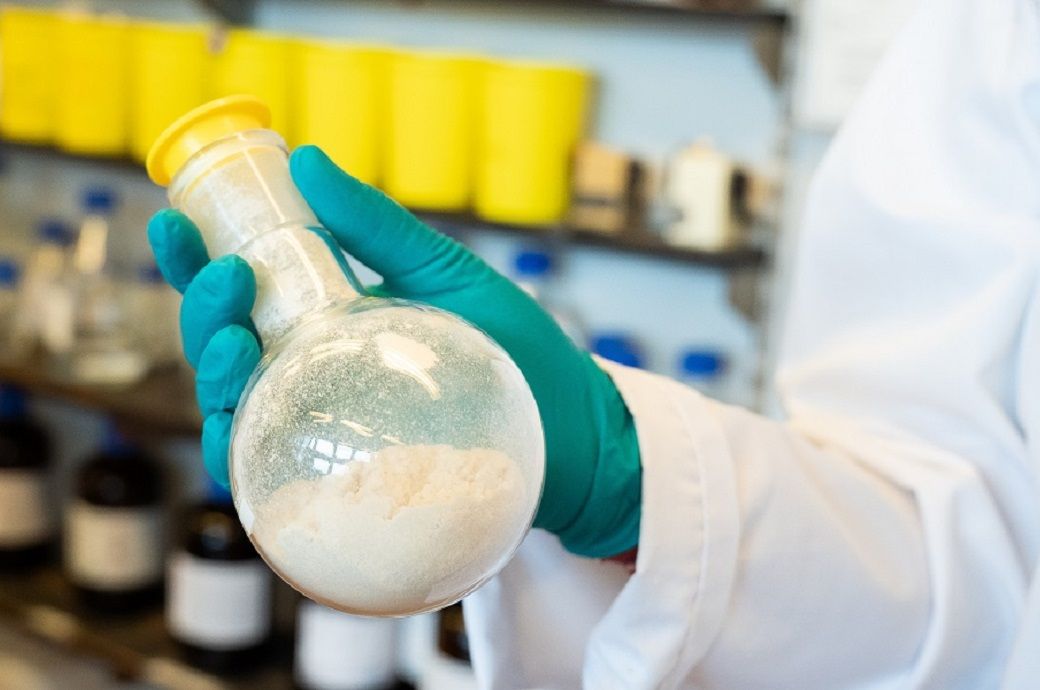Copenhagen chemists develop polyester recycling breakthrough

Insights
- Chemists at Copenhagen University have developed a new solution to recycle polyester.
- Their environmentally friendly technique depolymerises polyester while recovering cotton using a simple process.
- The method employs heat, a non-toxic solvent, and hartshorn salt, commonly used in baking.
- There are plans to scale this breakthrough to an industrial level.
“The textile industry urgently requires a better solution to handle blended fabrics like polyester/cotton. Currently, there are very few practical methods capable of recycling both cotton and plastic—it's typically an either-or scenario. However, with our newly discovered technique, we can depolymerise polyester into its monomers while simultaneously recovering cotton on a scale of hundreds of grammes, using an incredibly straightforward and environmentally friendly approach. This traceless catalytic methodology could be the game-changer,” explained postdoc Yang Yang of the Jiwoong Lee group at the University of Copenhagen's department of chemistry and study lead author.
A novel approach, however, sidesteps this problem without needing any special tools. By utilising warmth, an ordinary, non-hazardous solvent, and a common household substance, the solution was revealed, according to an article published on the University of Copenhagen’s online portal.
“For example, we can take a polyester dress, cut it up into small pieces and place it in a container. Then, add a bit of mild solvent, and thereafter hartshorn salt, which many people know as a leavening agent in baked goods. We then heat it all up to 160°C and leave it for 24 hours. The result is a liquid in which the plastic and cotton fibres settle into distinct layers. It’s a simple and cost-effective process,” said Shriaya Sharma, a doctoral student of the Jiwoong Lee group at the department of chemistry and study co-author.
The procedure employs hartshorn salt, or ammonium bicarbonate, which breaks down into ammonia, CO2, and water. The union of ammonia and CO2 catalyses a specific reaction called selective depolymerisation, decomposing the polyester but keeping the cotton fibres unharmed. Even though ammonia can be harmful by itself, it turns safe and eco-friendly when combined with CO2. The gentle nature of these chemicals leaves the cotton fibres in pristine condition.
This research group had earlier shown that CO2 could act as a catalyst to dissolve nylon, among other materials, without residue. Such prior work led them to investigate hartshorn salt’s potential. The researchers were delighted when this straightforward approach bore fruitful outcomes.
“At first, we were excited to see it work so well on the PET bottles alone. Then, when we discovered that it worked on polyester fabric as well, we were just ecstatic. It was indescribable. That it was so simple to perform was nearly too good to be true,” said Carlo Di Bernardo, doctoral student and study co-author.
Currently, this technique has been verified only in the lab, but its potential for larger applications is evident. The scientists are actively engaging with businesses to explore the procedure’s viability at the industrial level.
Fibre2Fashion News Desk (NB)
































-Ltd..jpg?tr=w-120,h-60,c-at_max,cm-pad_resize,bg-ffffff)





.jpg?tr=w-120,h-60,c-at_max,cm-pad_resize,bg-ffffff)
.jpg?tr=w-120,h-60,c-at_max,cm-pad_resize,bg-ffffff)






